 W
WDr. Robert J. Behnke was an American fisheries biologist and conservationist who was recognized as a world authority on the classification of salmonid fishes. He was popularly known as "Dr. Trout" or "The Trout Doctor". His seminal work, Trout and Salmon of North America, was published in 2002. He wrote a regular column for Trout Magazine, the quarterly publication of Trout Unlimited. He was a fisheries biologist with the U.S. Fish and Wildlife Service in the Colorado Cooperative Fish and Wildlife Research Unit and a professor at Colorado State University in the 1970s. He became a Professor Emeritus at the Department of Fishery and Wildlife Biology at Colorado State University.
Juliana Berners, O.S.B.,, was an English writer on heraldry, hawking and hunting, and is said to have been prioress of the Priory of St Mary of Sopwell, near St Albans in Hertfordshire.
 W
WMichael Brown AKA Mick is a British angler who co-hosts several fishing programs with Matt Hayes on Discovery Real Time (channel). He has starred in over 80 programs. He is best known for his love of targeting predator fish, especially pike.
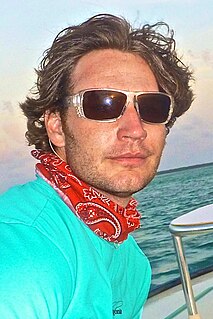 W
WAndrew "Drew" Chicone is an American author, saltwater fly designer, fly fisherman and fly casting instructor. He writes books and magazine articles demonstrating how to tie saltwater fly patterns, primarily focused on warm-water fish and fly fishing from standup paddleboards.
 W
WCharles Cotton was an English poet and writer, best known for translating the work of Michel de Montaigne from the French, for his contributions to The Compleat Angler, and for the influential The Compleat Gamester attributed to him.
 W
WJohn Dennys, a poet and fisherman, pioneered Angling poetry in England. His only work The Secrets of Angling was the earliest English poetical treatise on fishing. John Dennys may have been an acquaintance of Shakespeare.
 W
WJohn William Dunne was a British soldier, aeronautical engineer and philosopher. As a young man he fought in the Second Boer War, before becoming a pioneering aeroplane designer in the early years of the 20th century. Dunne worked on automatically stable aircraft, many of which were of tailless swept wing design, to achieve the first certified stable aircraft. He later developed a new approach to dry fly fishing before turning to speculative philosophy, where he achieved some prominence and literary influence through his "serialism" theory on the nature of time and consciousness, explained in his book An Experiment with Time.
 W
WSelwyn Kip Farrington, Jr. was an American writer and sport fisherman. As a journalist he did much to popularize big game fishing from the 1930s onward, and set a number of records himself. In addition to fishing, he was a noted rail enthusiast. Farrington wrote and published twenty-four books covering such diverse topics as fishing, railroading, and amateur hockey.
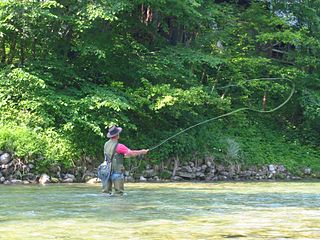 W
WFly fishing is an angling method that uses a light-weight lure—called an artificial fly—to catch fish. The fly is cast using a fly rod, reel, and specialized weighted line. The light weight requires casting techniques significantly different from other forms of casting. The flies may resemble natural invertebrates, baitfish, or other food organisms.
 W
WCharles Latham Gaines, Jr. is an American writer and outdoorsman, notable for numerous works in both the fiction and non-fiction genres. His writing most typically concerns the outdoors sports of fishing in general and fly fishing in particular, as well as upland bird hunting and mountaineering, often with an intellectual and philosophical bent, and an eye towards the various cultures and traditions surrounding different forms of fishing around the world.
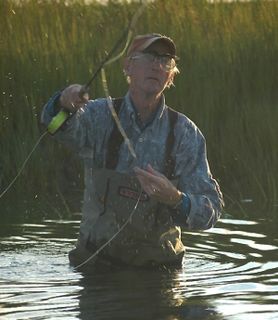 W
WJohn Clarence "Jack" Gartside was an American fly tyer and fly fishing author.
 W
WArnold W. Gingrich was the editor of, and, along with publisher David A. Smart and Henry L. Jackson, co-founder of Esquire magazine. Among his other projects was the political/newsmagazine Ken.
 W
WTheodore Gordon was an American writer who fished the Catskill region of New York State in the late 19th century through the early 20th century. Though he never published a book, Gordon is often called the "father of the American school of dry fly fishing". He wrote numerous articles for the Fishing Gazette from 1890 and published works in Forest and Stream from 1903, sometimes under the pseudonym Badger Hackle.
 W
WGeorge F. Grant was an American angler, author and conservationist from Butte, Montana. He was active for many years on the Big Hole River.
 W
WPearl Zane Grey was an American author and dentist best known for his popular adventure novels and stories associated with the Western genre in literature and the arts; he idealized the American frontier. Riders of the Purple Sage (1912) was his best-selling book.
 W
WFrederic Maurice Halford, pseudonym Detached Badger, was a wealthy and influential British angler and fly fishing author. Halford is most noted for his development and promotion of the dry fly technique on English chalk streams. He is generally accepted as "The Father of Modern Dry Fly Fishing". John Waller Hills, A History of Fly Fishing for Trout (1921) called Halford "The Historian of the Dry Fly".
 W
WCharles Hallock was an American author and publisher born in New York City to Gerard Hallock and Elizabeth Allen. On September 10, 1855 he married Amelia J. Wardell.
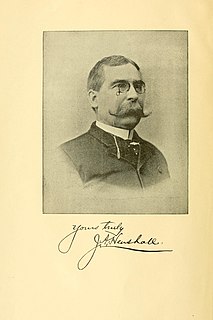 W
WJames Alexander Henshall was an author on fishing. He was known as the "apostle of the black bass". His book Bass, Pike, Perch and other Game Fishes of America (1903) is part of the American Sportsman's Library.
 W
WHenry William Herbert, pen name Frank Forester, was an English novelist, poet, historian, illustrator, journalist and writer on sport. Starr writes that "as a classical scholar he had few equals in the United States. .. his knowledge of English history and literature was extensive; he was a pen-and-ink artist of marked ability; as a sportsman he was unsurpassed; his pupils idolized him."
 W
WCharles Frederick Holder (1851–1915) was an American naturalist, conservationist, and writer who produced over 40 books and thousands of articles. Known as a pioneer of big-game fishing, he founded and led the Tuna Club of Avalon, credited as the first game fishing organization. He was socially active in Pasadena, California, where he was a trustee of Throop College and co-founder of the Tournament of Roses.
 W
WJohn Horrocks was the founder and innovator of modern European fly fishing.
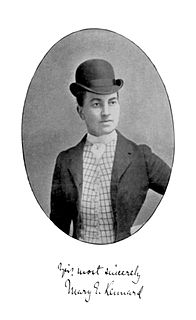 W
WMary Eliza Kennard (1850–1936) was an English novelist and writer of non-fiction. Most of her work was published under the name of Mrs Edward Kennard.
 W
WFor other people of the same name see Billy Lane and Billy Lane (footballer)
 W
WRalph W. "Bud" Leavitt Jr. was a Maine newspaperman who was executive sports editor of the Bangor Daily News, and a longtime outdoor columnist recognized statewide. In addition to his writing, Leavitt hosted one of Maine's earliest television shows, which was devoted to fishing, hunting and the out-of-doors. Leavitt's stature within the state was such that columnist Roy Blount Jr. wrote of the Maine sportswriter that he "fishes with Ted Williams and Red Smith – or, rather, they trout-fish with him." An early conservationist and son of a paper mill union leader, Leavitt urged the state of Maine to acquire lands for public use; one such preserve is today named for the sportswriter and television personality.
 W
WNorman Fitzroy Maclean was an American author and scholar noted for his books A River Runs Through It and Other Stories (1976) and Young Men and Fire (1992).
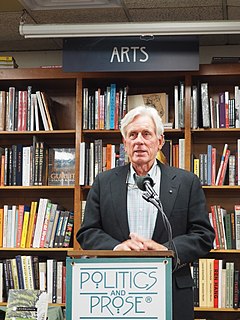 W
WThomas Francis McGuane III is an American writer. His work includes ten novels, short fiction and screenplays, as well as three collections of essays devoted to his life in the outdoors. He is a member of the American Academy of Arts and Letters, National Cutting Horse Association Members Hall of Fame and the Fly Fishing Hall of Fame.
 W
WJoseph Monninger is an American writer and Professor of English at Plymouth State University. He lives in Warren, New Hampshire.
 W
WMorgan John "Moc" Morgan OBE was a Welsh fly fisherman, administrator, naturalist and television presenter. Born into a rural family, Morgan became a head teacher, but his love of fly-fishing led him into media opportunities in Welsh radio and television. One of the definitive writers of books relating to fly-fishing within Wales, Morgan became an important administrator in Welsh, British and European aspects of the sport.
 W
WJordan Lawrence Mott IV (1881–1931), often referred to as Jordan Lawrence Mott III and better known as Lawrence Mott, was an American novelist and writer on the outdoor life. He was the great-grandson of Jordan L. Mott, who founded the J. L. Mott Iron Works in New York City. His grandfather was Jordan Lawrence Mott II, and his father was Jordan Lawrence Mott III.
 W
WArthur Victor Oglesby was a British writer, photographer, filmmaker, broadcaster and fisherman. He was best known for his books on salmon fishing.
 W
WHenry Anthony Pawson was an English sportsman who played cricket and association football and was a leading fly fisherman. He worked as a cricket writer and journalist. He was the son of Guy Pawson, and father of scientist Anthony Pawson.
 W
WArthur Michell Ransome was an English author and journalist. He is best known for writing and illustrating the Swallows and Amazons series of children's books about the school-holiday adventures of children, mostly in the Lake District and the Norfolk Broads. The books remain popular and Swallows and Amazons is the basis for a tourist industry around Windermere and Coniston Water, the two lakes Ransome adapted as his fictional North Country lake.
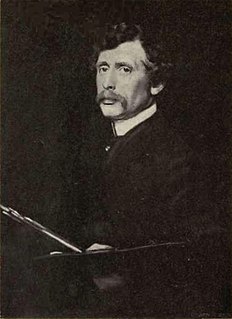 W
WLouis John Rhead was an English-born American artist, illustrator, author and angler who was born in Etruria, Staffordshire, England. He emigrated to the United States at the age of twenty-four.
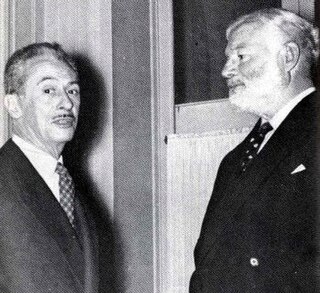 W
WCharles C. Ritz was a French hotelier and fly fishing specialist.
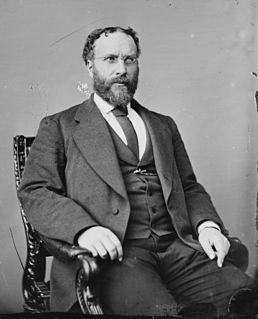 W
WRobert Barnhill Roosevelt, also known as Robert Barnwell Roosevelt, was a sportsman, author, and politician who served as a United States Representative from New York (1871–1873) and as Minister to the Hague (1888–1889). He was also a member of the Roosevelt family and an uncle of US President Theodore Roosevelt.
 W
WAlan Scotthorne of England is the first angler to win five individual World Freshwater Angling Championships, which were held at the following venues:1996 1997, 1998 2003 (Madunice, Slovakia Alan Scotthorne2007
 W
WGeorge Edward MacKenzie Skues, usually known as G. E. M. Skues (1858–1949), was a British lawyer, author and fly fisherman most noted for the invention of modern-day nymph fishing and the controversy it caused with the Chalk stream dry fly doctrine developed by Frederic M. Halford. His second book, The Way of a Trout with a Fly (1921) is considered a seminal work on nymph fishing. According to Dr Andrew Herd, the British fly fishing historian, Skues:was, without any doubt, one of the greatest trout fishermen that ever lived. His achievement was the invention of fly fishing with the nymph, a discovery that put a full stop to half a century of stagnation in wet fly fishing for trout, and formed the bedrock for modern sunk fly fishing. Skues' achievement was not without controversy, and provoked what was perhaps the most bitter dispute in fly fishing history.
 W
WWalter Wellesley "Red" Smith was an American sportswriter. Smith’s journalistic career spanned over five decades and his work influenced an entire generation of writers. In 1976, he was awarded the Pulitzer Prize for Commentary. Author David Halberstam called Smith "the greatest sportswriter of two eras."
 W
WThomas Tod Stoddart (1810–1880) was a Scottish angler and poet.
 W
WHenry Jackson van Dyke Jr. was an American author, educator, diplomat, and clergyman.
 W
WRobert Venables, was an English soldier from Cheshire, who fought for Parliament in the 1638 to 1651 Wars of the Three Kingdoms, and captured Jamaica in 1655.
 W
WRichard Stuart Walker was an English angler.
 W
WIzaak Walton was an English writer. Best known as the author of The Compleat Angler, he also wrote a number of short biographies including one of his friend John Donne. They have been collected under the title of Walton's Lives.